Welcome back to WHR You Decide!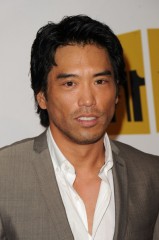
We are honored and pleased to announce our next special guest host, Peter Shinkoda of Falling Skies, Sanctuary, Supernatural, Stargate and many more television and movie appearances, in an exclusive interview Sunday, October 14th at 5PM Pacific, 8PM Eastern.
We suggest following Peter Shinkoda on Twitter and Facebook and click to learn more about Peter at his official web site!
How China and Wal Mart Have Re-created Alice In Wonderland For The 21st Century
 How is WalMart like China? If this were a riddle like that wonderfully bizarre line in Alice In Wonderland, “how is a raven like a writing desk”, we might never actually find an answer.
How is WalMart like China? If this were a riddle like that wonderfully bizarre line in Alice In Wonderland, “how is a raven like a writing desk”, we might never actually find an answer.
Like Alice in Wonderland, individuals immersed in the worlds of China and WalMart could very well argue that they have been transported to a mad world of chaos and nonsense. “Everyone in Wonderland is mad, otherwise they wouldn’t be down here” states the Cheshire Cat. Eventually, Alice comes upon the Queen of Hearts who expects to be obeyed, no matter how unreasonable her demands. Failure to do so results in the Queen screaming, “off with his head”.
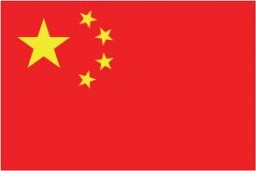 If you are a poor Chinese citizen, you might face working standards that make about as much sense as the experiences Alice encountered. China is factory to the world.
If you are a poor Chinese citizen, you might face working standards that make about as much sense as the experiences Alice encountered. China is factory to the world.
With over one billion people under China’s Communist rule, it is not surprising, albeit sad, that slavery is a fact of life for some Chinese.
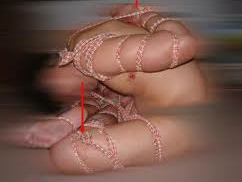 Once an isolationist Communist state, over the last 20 years China has become the world’s biggest exporter of consumer goods anywhere. But behind this apparent success story is a dark secret – millions of men and women locked up in prisons and forced into intensive manual labour.
Once an isolationist Communist state, over the last 20 years China has become the world’s biggest exporter of consumer goods anywhere. But behind this apparent success story is a dark secret – millions of men and women locked up in prisons and forced into intensive manual labour.
Quite sadly, China has the biggest penal colony in the world – a top secret network of more than 1,000 slave labour prisons and camps known collectively as “The Laogai“.
And the use of the inmates of these prisons – in what some experts call “state sponsored slavery” – has been credited with contributing to the country’s economic boom at a horrible cost, the abuse of human rights.
In 2010, the United States imported just under 250 billion dollars worth of goods from China. To create those goods, an estimated five and a half million men and women are locked up in prison and forced to work. “Here is a country which has decided to flood the world with very inexpensive products. A great many of those are actually produced by enslaved people who are in prison. That has to be called China’s “State Sponsored Slavery”, says Kevin Bales, President of “Free the Slaves”.
“Laogai, in Chinese means, ‘forced labour’”, said, Harry Wu, who was locked up in 1960 for being a ‘counter revolutionary rightist’, for criticizing China’s then ally, the Soviet Union. He spent 19 years in the camps. Now, one of China’s leading dissidents in exile, his U.S. based foundation investigates and documents the secrets of China’s prison labour slaves.
One reason why China wants to keep the vast network of camps secret is because each is a commercial operation making and exporting everything from industrial machinery to cheap consumer goods.
The second reason that China tries to hide the population of the prisons is because many are political or religious dissidents. Christians in China are permitted only to worship at state sponsored churches. Many refuse, seeking out underground churches. If they are caught, they are sent to The Laogai.
Officially, China has told the world that their slave prisons made products have been banned from export, yet there are many internet sites in China offering to supply western companies with products made by Chinese slave prison workers.
Charles Lee, an American of Chinese descent, was arrested in China for his support of a banned religious group and sentenced to prison. While there, he was forced to make 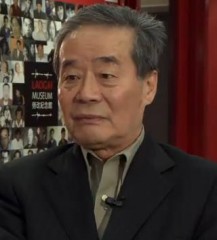 novelty slippers of the Homer Simpson character for export to the United States.
novelty slippers of the Homer Simpson character for export to the United States.
U.S Federal law bans the importation of any prison made products, but there is little evidence that Washington wants to enforce this with so much Chinese trade at stake. Getting China to change its behaviour toward its own people is difficult because, “the United States and Western European countries that would normally be the ones to call for change with a trading partner are, themselves, nervous about criticizing the Chinese because they owe them so much money,” said Kevin Bales.
Many consumers in the west know about the less than ethical way that China treats its people when it comes to making a buck. We understand that looking the other way while allowing these products to enter the North American market is a poor way to conduct business.
Most of us might even have been able to convince ourselves that it is actually corporations and our governments that are responsible for trade with China and therefore, it is their fault that stores like WalMart sell products made by slave labour. This, unfortunately, is not true. Almost every consumer in North America, and more recently, Great Britain and Europe has shopped at WalMart in order to save money on their purchases. We are also at fault as contributors to the system of slave workers in China.
WalMart accounted for approximately 9.3% of total U.S. imports from China between 2001 and 2006. This estimate is based on widely reported statistics, including Wal-Mart’s own estimates of its imports from China. U.S. imports from China increased $185 billion between 2001 and 2006, an increase of 181%. Wal-Mart’s share of U.S. imports from China was stable in this period. Its imports increased from $9.5 billion in 2001 to $26.7 billion in 2006, an increase of $17.2 billion (181%) Wal-Mart was responsible for a $17.1 billion increase in the U.S. trade deficit between 2001 and 2006. The Wal-Mart was also responsible for 111,400 lost U.S. jobs in 2001 and 308,100 jobs in 2006. Those numbers have continued to increase.
The growing U.S. trade deficit with China has displaced huge numbers of jobs in the United States and been a prime contributor to the crisis in manufacturing employment over the past several years. WalMart alone is responsible for the loss of nearly 200,000 U.S. jobs due to its own growing trade deficits with China. The current unbalanced U.S.-China trade relationship is bad for both countries, and Wal-Mart has played a major role in creating that imbalance. The United States is piling up foreign debt, losing export capacity, and facing a more fragile macroeconomic environment.
Duke University’s expert on the subject, Gary Gereffi, says Wal-Mart was not the first American company to head to China in search of low cost goods, but it has been the most aggressive. “Wal-Mart was one of the key forces that propelled global outsourcing, off-shoring of U.S. jobs, precisely because it controls so much of the purchasing power of the U.S. economy.”
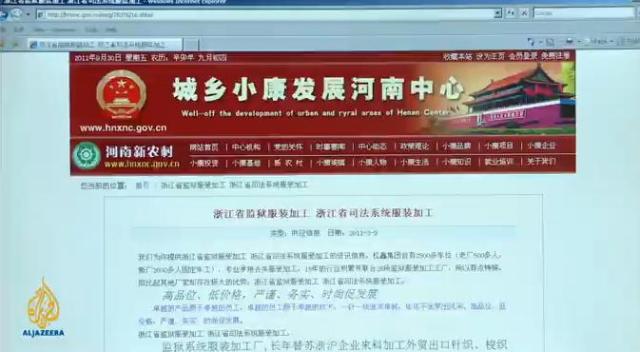
What is the U.S. shipping back?
“We’re shipping out about three billion worth of raw materials”, says Yvonne Smith, the director of communications for the port of Long Beach, “We export cotton, we bring in clothing. We export hides, we bring in shoes. We export scrap metal, we bring back machinery.” Much like a third-world country might.
Smith agreed. “We’re exporting waste paper, we bring back cardboard boxes with products inside them. … Wal-Mart is our number one customer.”
If China and WalMart are the villains in this tale of human rights abuses, and I am certain there are a great many ex WalMart employees who would argue that WalMart believes the “Lowest Wage is The Law”, then the Alice in Wonderland experience begins as WalMart builds stores in China.
Consider the similarities:
Both are animated by a mythologized grand progenitor. Sam Walton’s smiling face today hangs prominently in Walmart stores, much as Mao 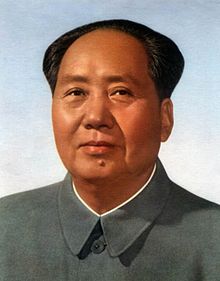 Zedong’s iconic image still hangs in Tiananmen Square and adorns China’s increasingly powerful currency. Even today, these founders’ successors rule supreme—as Walmart’s CEO and as the Chinese Communist Party’s secretary general.
Zedong’s iconic image still hangs in Tiananmen Square and adorns China’s increasingly powerful currency. Even today, these founders’ successors rule supreme—as Walmart’s CEO and as the Chinese Communist Party’s secretary general.
Each is not only unelected, but also anointed with “Big Leader” status to reign over a fundamentally authoritarian organization held together by an elaborate belief system bordering on the religious. And each presides over an enormous and complex oligarchy staffed by a professionalized core of operatives—namely, Party leaders in China, and senior executives and mid-level managers at Walmart.
Each of these super sized organizations seeks to influence the outside world through the media, advertising, and PR while at the same time maintaining rapt obedience among its own minions, through written propaganda, motivational campaigns, and sometimes coercive measures aimed at bringing wayward “comrades” or “associates” back into line. In fact, each system employs a significant amount of monitoring, even outright electronic surveillance, to make sure that employees and citizens and customers alike stay within the boundaries of “correct” behavior.
And finally, each professes a proud populism, always proclaiming a stewardship over the masses. China’s leadership, with its socialist roots, has 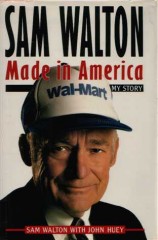 long stressed “serving the people,” while Walmart, with its capitalist roots, emphasizes “service to the customer.”
long stressed “serving the people,” while Walmart, with its capitalist roots, emphasizes “service to the customer.”
In fact, Walmart stores in China prominently display personnel charts that are inverted pyramids, with the customers and lowest workers situated on the top tier and the managers on the bottom. What is displayed prominently, however, is the double speak of a topsy-turvey system where only the Mad Hatter gets a clean spot at the table.
In a world gone mad with corporate greed, another concern is corporate and government spying as reported by 60 Minutes on a company known as Huewei, suspected of using its position to infiltrate telecommunications and Internet systems for the Communist government of China. A recently released report by the United States Congress and other government agencies including those in Canada and England share similar concerns.
The real asset for the rich and powerful are the people who must be clothed, fed and entertained. As soon as we stop getting sidetracked by Tweedle Dee and Tweedle Dum, the Walrus and the Carpenter and the White Rabbit, we will no longer be at their mercy.
 Thanks to Kenn for final editing, audio/video embedding, and many thanks to you for reading and stopping by WormholeRiders News Agency
Thanks to Kenn for final editing, audio/video embedding, and many thanks to you for reading and stopping by WormholeRiders News Agency
Please feel free to leave a comment here, click a social media icon below to share this review.
Or you can visit and follow me on Twitter by clicking on my avatar to the right and we can tweet about the celebrities on You Decide.
Regards.
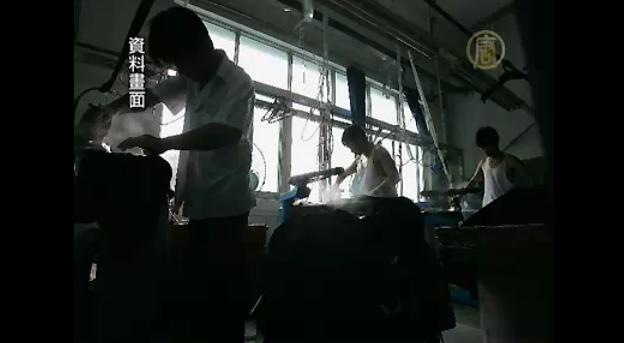
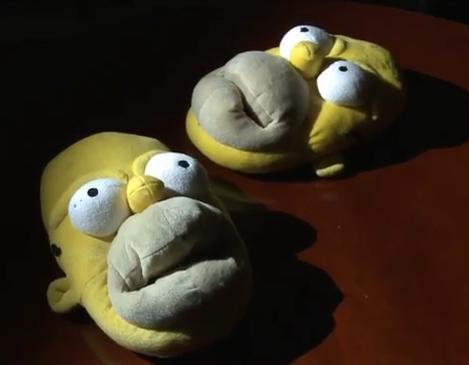

Hello Peter and Patricia!
Many thanks Peter for joining You Decide this Sunday to discuss the serious situation people seem to take for granted, WalMart and China slavery. If only people realized that much of what they purchase at WalMart and so many other places is “bought” at the misery of others.
Thank you Patricia for an outstanding feature article on this important human interest subject.
Best Regards,
Kenn